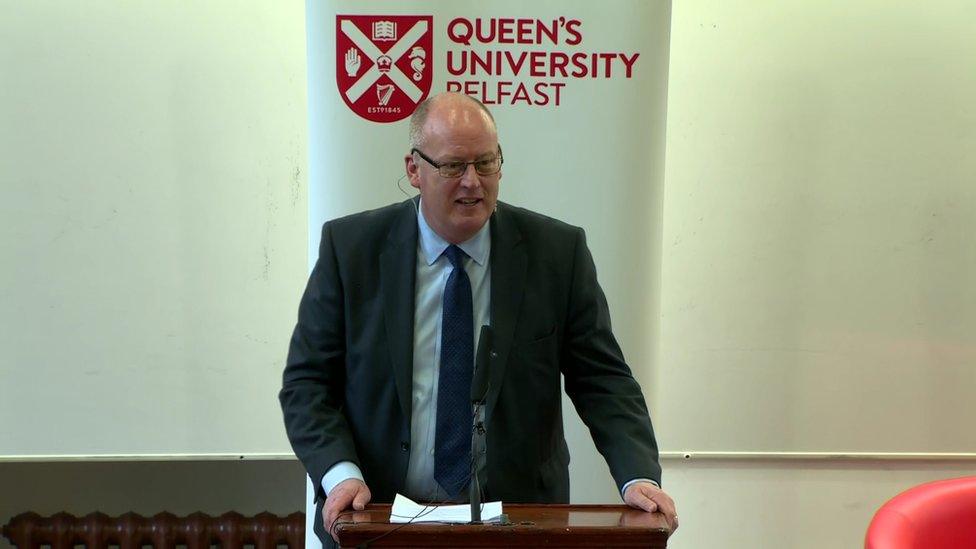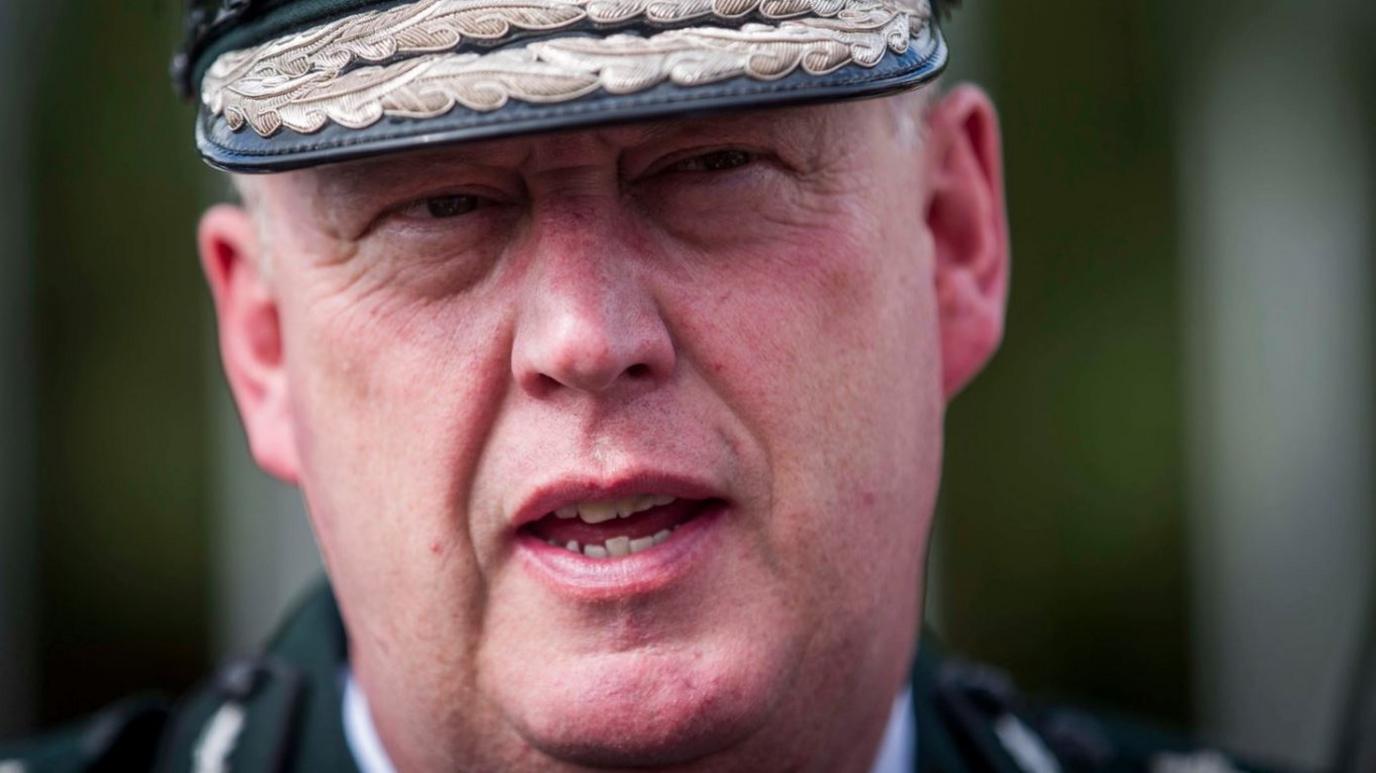Chief Constable accuses politicians of playing 'blame game'
- Published

Politicians are "shifting the blame" when it comes to legacy issues, the PSNI's chief constable has said.
George Hamilton, who is due to retire in June, was speaking at Queen's University Belfast on Tuesday.
The chief constable said he was disappointed by public representatives who sympathised with him in private, then publicly claimed there was no confidence in policing.
He said that the PSNI was ill-equipped to deal with legacy issues.
He said: "I find it disappointing when politicians from all parties give me tea and sympathy on the issue in private but, in public, talk of our failures in dealing with legacy and how this has created 'rock bottom confidence' in policing or partisan policing by only pursuing state actors."
He described this as "point scoring" and "shifting the blame".
"I think it is a damning indictment, that in the ongoing political vacuum, members of grieving families are passing away without any resolution, without justice and without answers," he said.
He said that he believed and had warned that policing and the peace process risked being dragged backwards unless "a societal and political resolution" was found to deal with the past.

By Julian O'Neill, BBC News NI Home Affairs Correspondent
George Hamilton has long wanted Troubles investigations taken off the PSNI - among other things they drain resources.
His speech was a reminder to politicians that they have failed to deliver on a plan, dating from 2014, to deal with the past.
Following a public consultation, the Government aims to update parties on next steps during the current political talks.
It is believed this will involve options to make changes to a new Historical Investigations Unit.
Whatever finally emerges requires legislation at Westminster, with the autumn considered a realistic time frame.
By then, the PSNI will have a new chief constable.
George Hamilton hopes they will be free from a problem not sorted out during his five years in office.

'Don't be surprised when we drop the ball'
"The PSNI is not equipped to deal with the past so don't be surprised when we drop the ball," the chief constable told the audience.
"Across the political spectrum, those who should bear responsibility for supporting further progress have too often defaulted to the blame game," he said.
"They have retreated to their respective bunkers, finding it easier to blame the police without taking any responsibility for the context in which police are being asked to operate," he added.
Mr Hamilton expressed his frustration that the Policing Board had collapsed because of the shut-down of the devolved institutions.
Northern Ireland has been without an executive since January 2017, when the governing parties - the DUP and Sinn Féin - split in a bitter row over a flawed green energy scheme.

George Hamilton's police CV
1985: Joined Royal Ulster Constabulary (RUC)
1994: Promoted to RUC inspector and seconded to England for development programmes
1997: Returned to uniform patrol in NI and subsequently worked on Patten policing reforms
2002: Worked as a senior detective in PSNI's Criminal Investigation Department (CID)
2007: Appointed district commander for south and east Belfast
2009: Joined Strathclyde Police as assistant chief constable
2011: Returned to NI as PSNI assistant chief constable
2014: Appointed PSNI's fourth chief constable

Mr Hamilton also paid tribute to the journalist Lyra McKee who was shot dead by dissident republicans in Londonderry last month.
"She was a champion of inclusivity killed by young men lost in the margins of Northern Ireland's new beginning," he said.
He praised the police officers who had risked their lives to try and rush her to hospital the night she died.
He said that after her death challenges had rightly been laid at the feet of political leaders to break the deadlock.
He said there must be no underestimation that action and a resolution to the outstanding issues is badly needed.
"Long before Lyra was murdered there was a sense that the peace process was stalling," he said.
- Published28 January 2019
